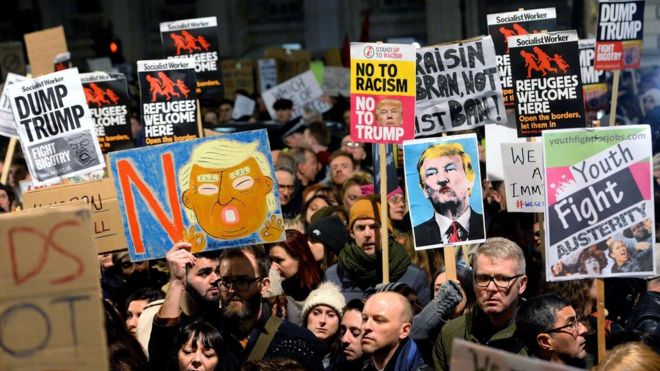Appeal Court Rejects Bid To Reinstate Trump Travel Ban

NEW DELHI: In a major blow to President Donald Trump’s administration, a United States appeals court has rejected an attempt to reinstate the controversial travel ban on visitors from seven predominantly Muslim countries as well as refugees from the world over.
The 9th US Circuit Court of Appeals said it would not block a lower-court ruling that halted the order. The court was ruling on an appeal filed against District Judge James Robart restraining order on enforcement of the travel ban last week, after Washington state and Minnesota sued. The two states argued that the ban harmed universities and discriminated against Muslims. Following the restraining order, the appeal was filed by the Justice Department on behalf of the US government, and argued that the President had sole discretion to determine and set immigration policy.
The appeals court, in a 3-0 ruling, said that the US government had not being able to prove that the terror threat justified reviving the ban.
Donald Trump tweeted an angry response, saying that the “security of our nation is at stake.”
The appeals court’s decision to reject the bid to reinstate the ban means that people from Iran, Iraq, Libya, Somalia, Sudan, Syria and Yemen with visas can continue to enter the US, and that refugees -- who were subjected to a temporary ban -- are no longer blocked.
In its ruling, the court said that while both sides had made compelling arguments, there was "no evidence that any alien from any of the countries named in the order" had committed a terror attack in the US. "On the one hand, the public has a powerful interest in national security and in the ability of an elected president to enact policies,” the court said, adding that “on the other, the public also has an interest in free flow of travel, in avoiding separation of families, and in freedom from discrimination." The court further said that the travel ban stripped foreign arrivals of their rights under the Constitution.
Referring to President Trump’s assertion that courts are powerless to review a president’s national security assessments, the ruling said that judges have a crucial role to play in a constitutional democracy. “It is beyond question that the federal judiciary retains the authority to adjudicate constitutional challenges to executive action,” the court said.
The three members of the panel were Judge Michelle T. Friedland, appointed by President Barack Obama; Judge William C. Canby Jr., appointed by President Jimmy Carter; and Judge Richard R. Clifton, appointed by President George W. Bush.
The case is now likely to end up in the US Supreme Court. Following the verdict, the Justice Department said it was "reviewing the decision and considering its options".
Trump immediately tweeted in response to the ruling, and later told reporters at the White House that the ruling was “a political decision” and that his lawyers would win an appeal “in my opinion, very easily.”
The matter is likely to come up in the Supreme Court as early as next week, but till then -- refugees and visitors from the blocked countries can freely enter the United States. The battle, however, is far from over. Although legal challenges to Trump’s executive order have been filed in various courts across the US, they remain at very early stages. Only one has made it to an appeals court. While the rejection of the appeals court is a victory for opponents of the ban, it is limited in the sense that it rules only on the the narrow question of whether to stay a lower court’s temporary restraining order blocking the travel ban.



